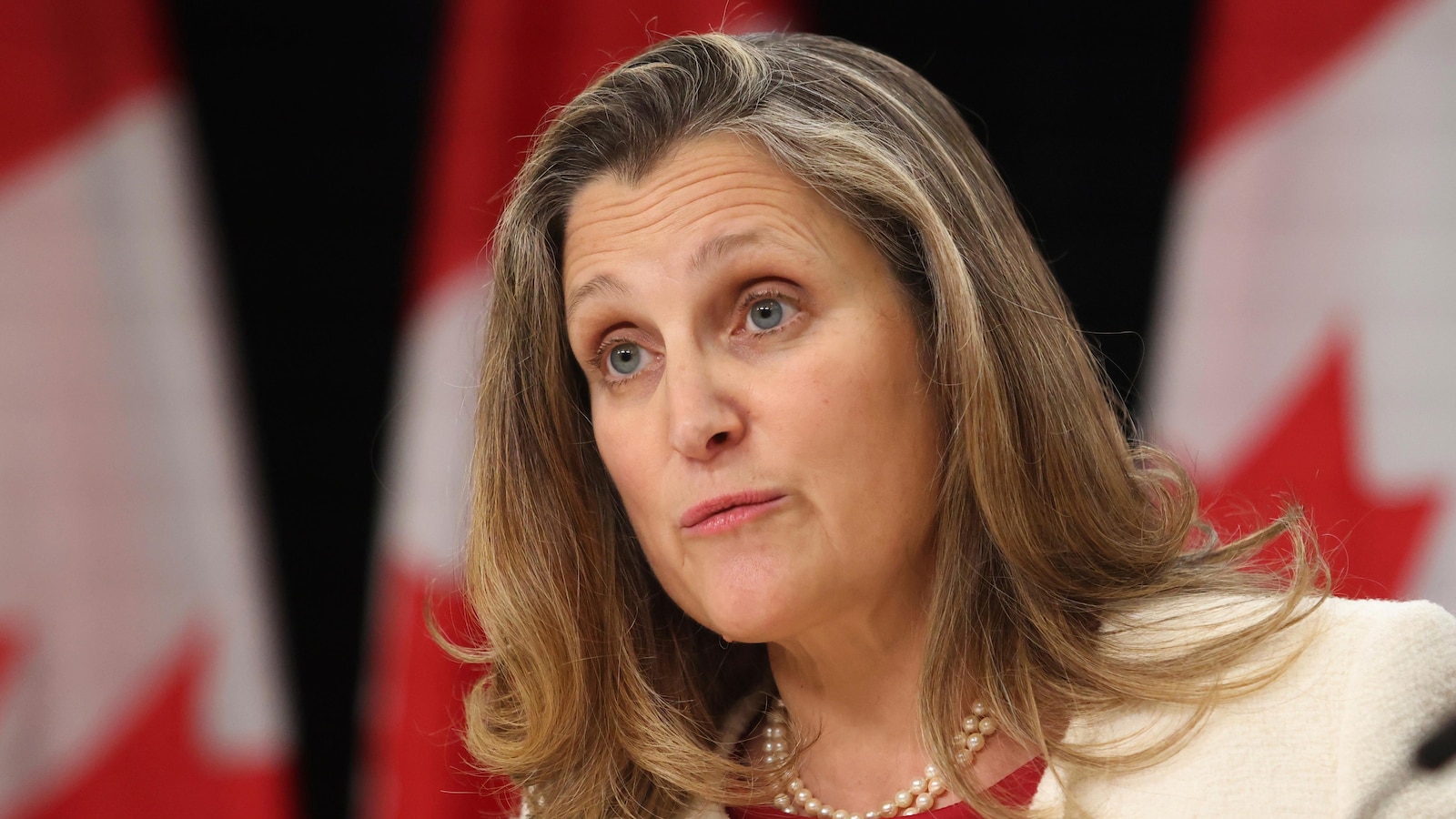TORONTO — Canada’s point person for U.S-Canada relations said Tuesday she shares U.S. concerns about Mexico serving as a back door for China to import cheaper goods into the North American market as a review of the trade pact known as the U.S.-Mexico-Canada Agreement looms.
Deputy Prime Minister Chrystia Freeland said members of the outgoing administration of U.S. President Joe Biden and supporters and advisers of President-elect Donald Trump have expressed “very grave” concerns to her about the issue and Canada shares them.
“We are perfectly aligned with the United States and that means we are not a back door to unfair Chinese traded goods,” Freeland said during a press conference. “The same cannot be said about Mexico.”
Canada announced this year it is launching a 100% tariff on imports of Chinese-made electric vehicles, matching U.S. tariffs imposed over what the countries say are China’s subsidies that give its industry an unfair advantage. Canada has also imposed a 25% tariff on Chinese steel and aluminum. Mexico does not have similar tariffs.
“We believe that China’s intentional overcapacity is unfair and a threat to key Canadian industrial sectors. It is a threat to Canadian jobs and that’s why we’ve imposed 100% tariffs on Chinese EVs, 25% tariffs on Chinese steel and aluminum,” Freeland said.
Mexico’s foreign affairs ministry didn’t immediately respond to a message seeking comment.
Canadian Prime Minister Justin Trudeau called Trump after his election win and the two discussed the trade deal Trump reached during his first term with Canada and Mexico, the USMCA, which replaced the North American Free Trade Agreement, or NAFTA.
Ottawa will soon have to focus on a scheduled review of the agreement in 2026.
Doug Ford, the premier of Canada’s most populous province of Ontario, suggested this month that Canada should forge ahead on a bilateral trade deal with the U.S. if Mexico doesn’t clamp down on Chinese auto imports entering North America.
During the recent U.S. election campaign, Trump proposed tariffs of 10% to 20% on foreign goods — and in some speeches has mentioned even higher percentages.
Freeland chairs a special cabinet committee on U.S-Canada relations that is designed to address concerns about another Trump presidency. She spoke to reporters Tuesday after a committee meeting.
During Trump’s first term, his move to renegotiate NAFTA and reports that he was considering a 25% tariff on the auto sector were considered an existential threat in Canada at the time.
Canada is one of the most trade-dependent countries in the world, and 75% of Canada’s exports, which include automobiles, go to the U.S.
Freeland said this is a “serious time for our country” and called on Canadian leaders in business and government to rally together.

